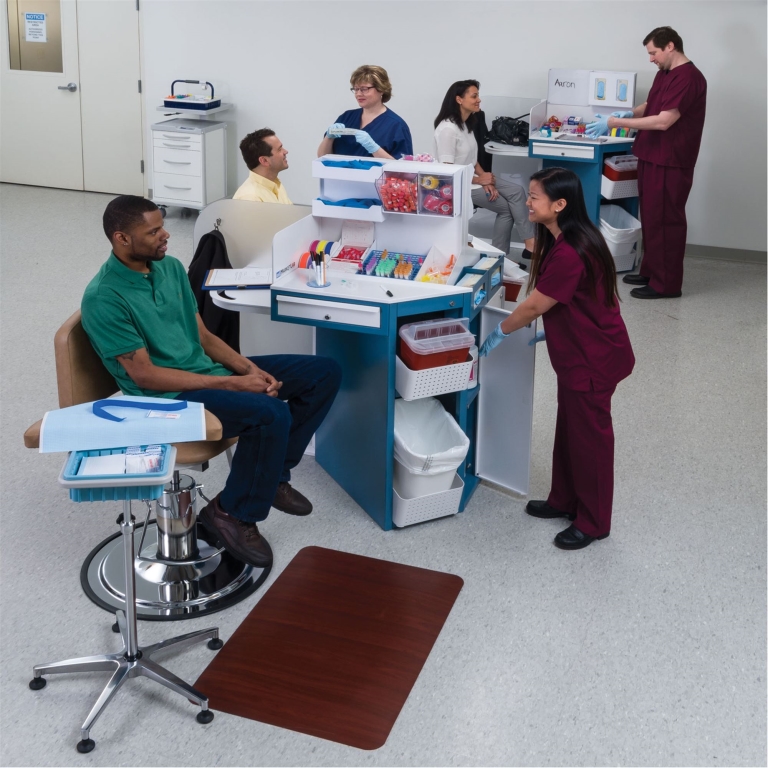Boost Your Healthcare Career: Top Benefits of Earning a Medical Administrative Assistant degree
Are you passionate about the healthcare industry but unsure how to advance your career? Earning a medical administrative assistant degree could be your gateway to exciting opportunities and professional growth. as the backbone of healthcare operations, medical administrative assistants play a vital role in ensuring smooth clinic and hospital functioning. Let’s explore how obtaining this degree can substantially boost your healthcare career, providing you with the skills, recognition, and stability you desire.
Why Pursue a Medical Administrative Assistant Degree?
In today’s competitive healthcare landscape, having specialized education can set you apart from other job seekers. A medical administrative assistant degree offers targeted training in essential skills like healthcare management, medical billing, electronic health records, and patient communication. It’s designed to prepare you for a variety of roles within medical settings, from private clinics to major hospitals.
Top Benefits of Earning a Medical Administrative Assistant Degree
1. Enhanced Job Opportunities and Career Advancement
One of the biggest advantages of earning a medical administrative assistant degree is increased employability. Healthcare facilities actively seek professionals with formal education because it demonstrates competence and dedication.
- Access to diverse roles such as clinic coordinator, medical receptionist, billing specialist, and more.
- Opportunities for promotion into supervisory or managerial positions.
2. Competitive Salaries and Job Security
According to recent industry reports, medical administrative assistants with formal training tend to earn higher salaries than those without specialized education. Additionally, the healthcare sector’s ongoing growth ensuressolid employment prospects.
| Role | Average Salary (USD) | Growth Rate (2021-2031) |
|---|---|---|
| Medical Administrative Assistant | $40,000 – $50,000 | 9% |
| Medical office Manager | $55,000 – $70,000 | 12% |
| Medical Billing Specialist | $42,000 - $55,000 | 8% |
3. Skill Advancement for Long-term Success
A degree program provides complete training in essential healthcare operations:
- Healthcare policy and ethics
- Medical coding and billing
- Electronic health records (EHR) management
- patient privacy and confidentiality
These skills are critical for ensuring efficient clinic management and patient satisfaction, making you an invaluable team member.
4. Increased Professional Recognition and Credibility
Holding a formal degree elevates your professional standing among colleagues and employers. It demonstrates your commitment to quality and continuous learning, opening doors to leadership roles within healthcare settings.
5. Adaptability and Diverse Work Environments
Many healthcare offices, hospitals, outpatient clinics, and specialty practices require skilled administrative professionals. An medical administrative assistant degree allows you to work in various environments, each offering different experiences and career paths.
Practical Tips for Earning Your Medical Administrative Assistant Degree
- Research accredited programs: Ensure the institution is reputable and recognized by industry standards.
- Focus on hands-on experience: Opt for programs that include internships or practicums, offering real-world practice.
- Stay updated on healthcare technology: Familiarize yourself with current software and EHR systems.
- Network actively: Join professional associations like the American Association of medical Assistants (AAMA) to connect with industry insiders.
- Continue education: consider pursuing certifications or specialized training to enhance your expertise.
Case Study: From Entry-level to Healthcare Coordinator
Meet Sarah,who started her career as a receptionist in a busy clinic. After earning her medical administrative assistant degree, she gained skills in billing and medical coding. Over three years, Sarah was promoted to clinic supervisor and eventually became the healthcare coordinator, overseeing administrative and operational tasks. Her story exemplifies how specialized education can translate into career growth and increased earnings.
Firsthand Experience: Why Students Love Earning a Medical Administrative Assistant Degree
Many students highlight the practical aspects of their training-learning to manage patient records,handle insurance claims,and communicate effectively with healthcare professionals. The flexible scheduling of many programs allows individuals to balance work and study,making this degree accessible for a wide range of learners.
Conclusion
Embarking on a journey to earn a medical administrative assistant degree can truly transform your healthcare career. From improving your job prospects and salary potential to developing vital skill sets that keep healthcare facilities running smoothly, the benefits are substantial. Whether you’re just starting or looking to elevate your current position, investing in your education today can pave the way for a rewarding, stable, and professional future in healthcare.
Take the first step toward a thriving healthcare career by exploring accredited programs and considering how a medical administrative assistant degree can fit into your professional goals. The healthcare industry depends on dedicated,skilled administrative professionals-are you ready to be one of them?



